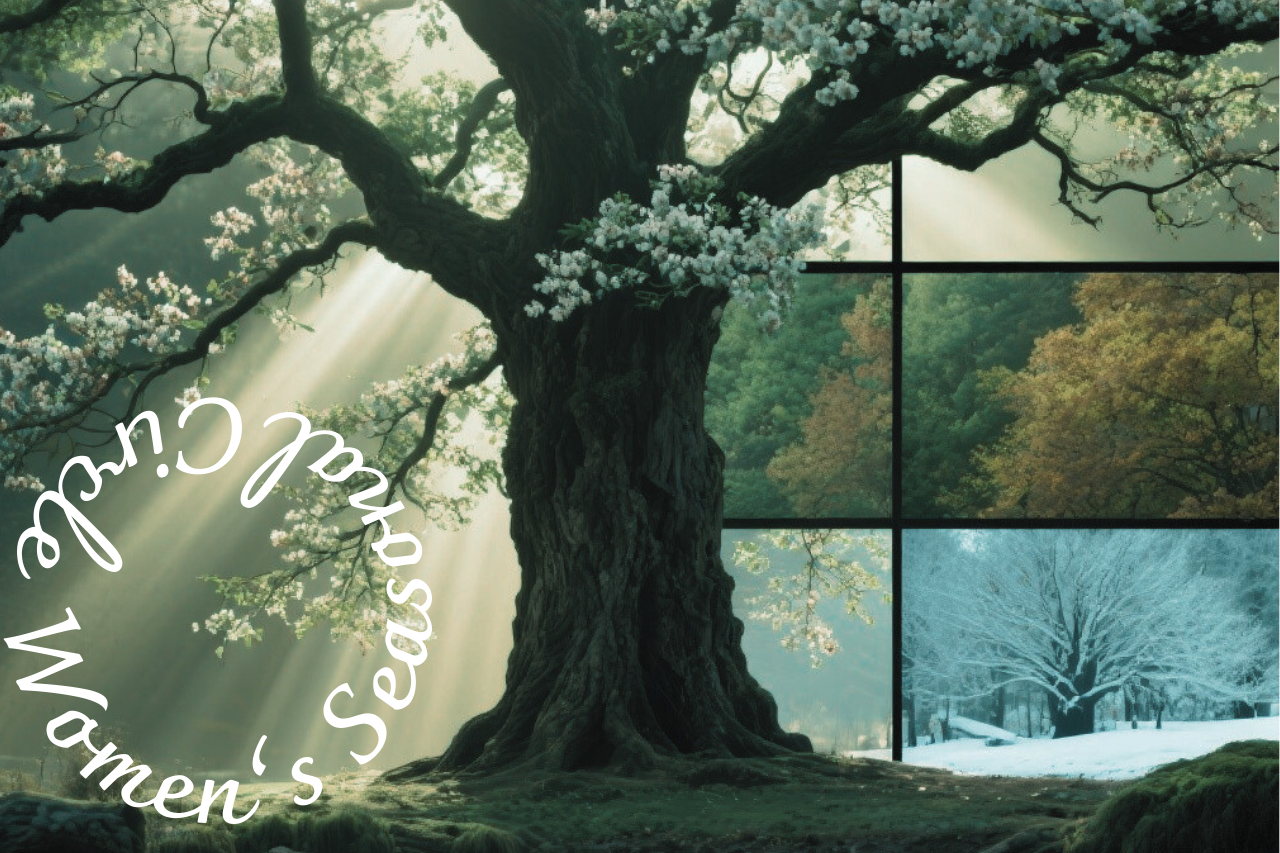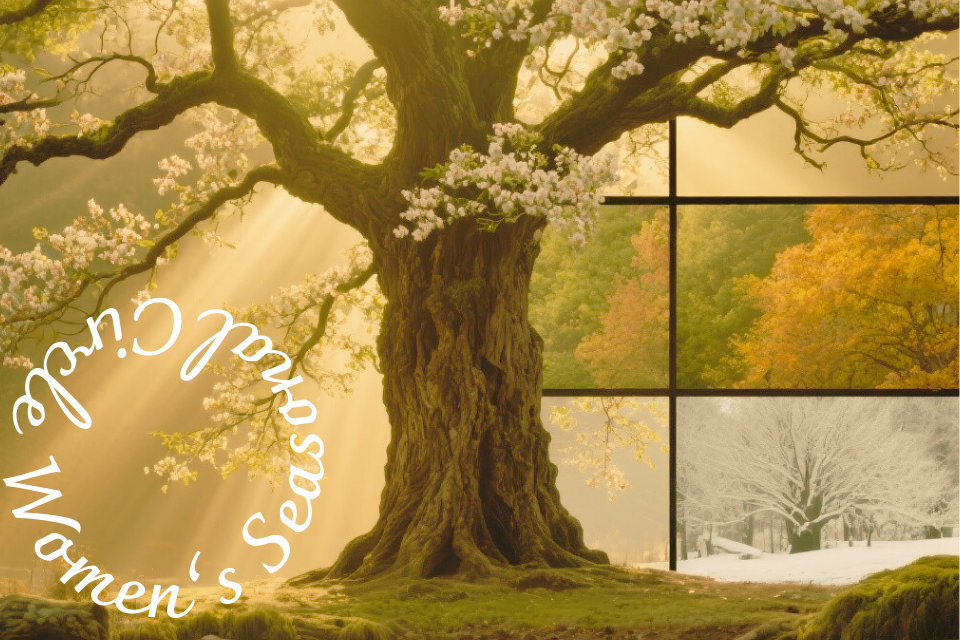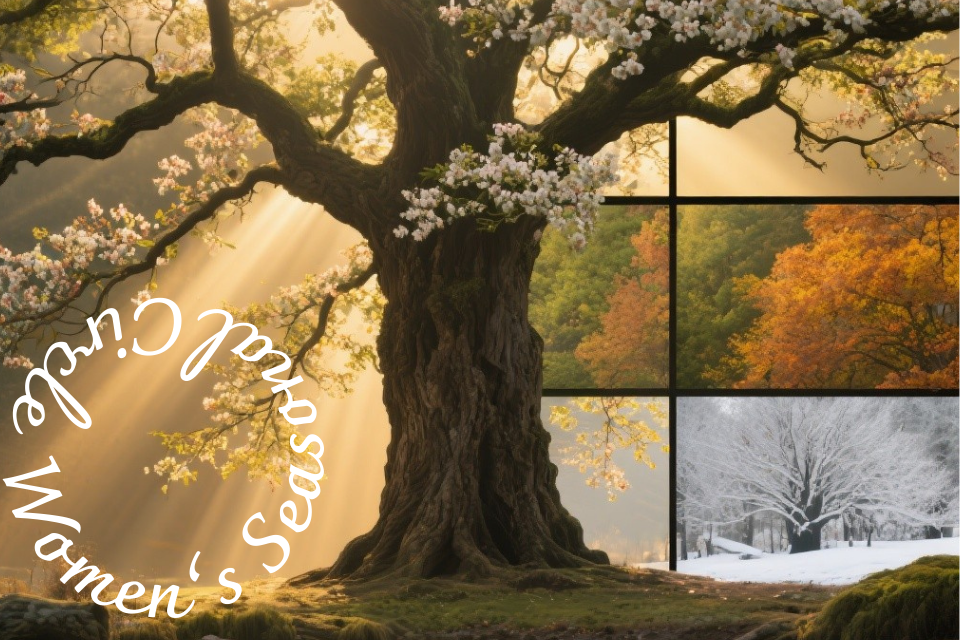Why Winter Matters in the Seasonal Circle
Winter is the season of silence, the earth’s great exhale. The fields lie dormant, trees stand bare, and rivers move more slowly under the cold air. For us too, winter is not simply a time to endure, but a time to restore. In most traditions, winter corresponds to the months of December, January, and February in the Northern Hemisphere. In Chinese thought, winter begins earlier, with the arrival of the first frost in November and extends until the first stirrings of spring in early February. In Mediterranean climates, winter is milder yet still carries the rhythm of stillness.
Recognizing winter as its own season is to honor the cycle of life itself: the pause between harvest and rebirth, the silence before song. It teaches us that dormancy is not emptiness, but the secret work of renewal.
Insights from Chinese Medicine
In Chinese Medicine, winter is governed by the Water element, associated with the kidneys and bladder — the seat of our deepest energy, known as jing. This is a time when yang energy hides within, like seeds under the soil. To push too hard, to overwork or overexert, is to deplete the reserves that will be needed in spring. The advice is clear: rest, nourish, conserve.
Practices like moxibustion, warming teas, and gentle movements such as qigong are emphasized. The kidneys, seen as the “roots of life,” benefit from being kept warm, both with clothing and with foods that kindle inner fire. Winter asks us to befriend stillness rather than resist it.
Ancient Greek Perspectives
For the Greeks, winter was the reign of cold and wet — phlegm in the Hippocratic theory of humors. Physicians advised against overindulgence, noting that the body’s fire was weaker and digestion slower. Warm wines, honeyed drinks, and simple stews were common prescriptions. Winter was also a time for philosophical retreat. Schools of thought such as the Stoics saw the darker months as a teacher of endurance, reminding humans of their smallness before nature, yet also of their inner strength.
Contemporary Medical Insights
Modern medicine points to the challenges of winter: shorter days affect melatonin and serotonin, which can alter sleep and mood. The body’s immune system is tested as colds and flu circulate. Yet research also shows that rest and recovery in winter support long-term health. Exposure to natural light, moderate exercise, and nourishing foods are protective factors. The idea of “wintering” — taking intentional time for reflection and renewal — has gained traction as a counterbalance to modern busyness.



Practices for the Season
Winter invites slowness. Restorative yoga, meditation, tai chi, or even simply sitting with a warm cup of tea or cocoa with mylk can become profound acts of alignment with nature’s rhythm. Keeping the body warm — especially the feet, lower back, and ears — is a small but powerful ritual. Evening routines with candlelight or quiet reading honor the season’s intimacy. This is not laziness but wisdom: to gather energy so that spring will come with vitality.
Nourishment for the Season
Foods that comfort and strengthen are best. Root vegetables, lentils, beans, and grains form the base, enriched with warming spices. Chinese Medicine recommends bone broths, black sesame seeds, walnuts, and dark leafy greens for the kidneys. Ayurveda highlights kitchari, ginger, turmeric, and ghee. The Mediterranean table offers lentil soups, chickpeas with olive oil, chestnuts, and citrus fruits like oranges and mandarins. Across cultures, food in winter is about warmth, strength, and preservation of inner heat.
Old traditions remind us of winter’s wisdom: in Greece, olives and olive oil pressed in autumn become the daily medicine of winter. In Northern Europe, fermented cabbages (sauerkraut) bring both nutrition and probiotics. In Japan, miso and pickled vegetables sustain families through the cold. Winter kitchens everywhere are places of both survival and ceremony.
Vitamins and Fruits
Vitamin D remains essential during the low-light months. Spirulina, especially if grown locally, offers minerals that support energy and immunity. Seasonal fruits carry the signature of resilience: oranges, grapefruits, mandarins, and pomegranates in the Mediterranean; apples stored from autumn in Northern climates; guavas and papayas in tropical lands. Each fruit is a reminder that sweetness persists, even in the cold.
Mindful Practices and Self-Discovery
Winter is the season of listening. Silence outside can become silence within. A reflective practice for this season might be: What part of me needs deep rest, and how can I honor that need without guilt? Another is to consider: What seeds of intention do I wish to plant quietly, waiting for spring to awaken them? Journaling by candlelight, meditating on breath, or simply walking in the crisp morning air can all deepen this sense of inner wintering.
References:
Wintering: Katherine May (2020). The Power of Rest and Retreat in Difficult Times.
Ethnographic accounts of Mediterranean and East Asian food traditions.
Panagiota Sophia Vlahou
Certified Beekeeper | Specializing in Traditional Beekeeping & Natural Wellness Methods
Trained in Traditional Acupuncture – Academy of Traditional & Chinese Medicine
Member of the Beekeepers’ Association of Attica-Greece
Disclaimer: This article is for educational and informational purposes only. It is not intended to diagnose, treat, cure, or prevent any disease, and it does not substitute professional medical advice. Always consult a qualified healthcare professional before making any changes to your diet, lifestyle, or health practices.




